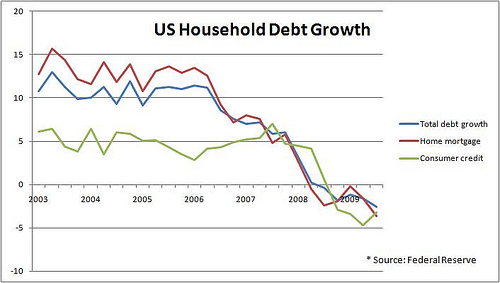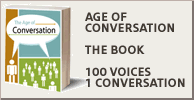
While there have been a few promising innovators in the field of financial services, like Mint and some peer to peer lenders, nothing has really shaken the industry out of its lethargy and done something to meet the real needs of consumers.
BankSimple could be about to change that. Instead of trying to work outside the system and bring something new to the table, BankSimple is using existing financial players to provide the basic banking services, but is using its skills to provide a radically new customer service experience on top.
The company clearly believes and understands that consumers are looking for something new.
"BankSimple will be a worry-free alternative to traditional personal banking. No surprise fees and the customer service you deserve. And that's just the beginning."
The company seems to determined to provide consumers with a simple way to manage and understand their finances- with interesting tools to help people know how much money they have to spend, set saving goals, etc.
They also intend to explore new ideas, like couples sharing accounts and friends joining together for transactions.
Hopefully, BankSimple will also be able to use its rich dataset to encourage its FDIC approved partners to provide more innovative financial services products.
If they can succeed by combining excellent customer service through the innovative application of tools and user interface with new products, the banking establishment could well have something to worry about.
The company plans to launch in 2011.
One group of consumers who might find BankSimple highly attractive are "the first time defaulters" that Deloitte identified in a recent study.
This group, which represents 11% of the banking population are people who've been hit by a negative credit situation, in the last two years, for the first time in their lives.
This group has a very bad impression of banks.
- 41% of the 5,000-odd survey respondents rated their interaction with their lenders "poor"
- 43% doubted the banks' "willingness to listen to my concerns."
- Two-thirds said they are unlikely to borrow again from the same institution in the future.
If BankSimple can find these people, it would be a nice base to build from, but it's going to have to find not just deliver excellence through UI, but actively "listen" to these customers concerns and provide solutions.
Posted by Ed Cotton
Looking at this data, it provides some insight as to why the President acted as he did.
However, there's more to this story than meets the eye and more questions to ask.
- What type of banks don't people trust?
- What is it about banks that they don't trust?
I am sure Edelman have this data and it would be great to see it if they do.
Banks clearly have a huge issue that is in crisis proportions and something they need to devote a lot of energy towards. Simply ignoring the issue and hoping it will go away, isn't going help. These institutions need a whole way of thinking about how they need to relate to and communicate with their customers and beyond this need ideas that prove they are to be trusted.
Posted by Ed Cotton

Posted by Ed Cotton
Despite the tight caps on travel and expense budgets, if the topic is right and there's money to be made, people will want to talk.
I just got this email about the Loan Modifications Conference, which seems like a deal at $595.
"As you know, the federal government has announced plans to do millions of loan modifications to help struggling homeowners stay in their homes and avoid foreclosure. You probably also know the ramp-up for the program has not been terribly fast or easy, as servicers struggle with capacity issues, program requirements, and mandatory test trial periods for all the modifications.
Is the government program with its stringent mandates the best way to do loan modifications? Or is best practice a mix of techniques, like increased loan terms, decreased interest rates and decreased principal? The rates of re-defaults on industry-generated loan mods have been extremely high, making getting this right an absolute imperative for all servicers."
The banking and finance industry has a lot on its plate, sorting out the home financing mess seems like it should be top of the agenda, so perhaps a conference isn't such a bad idea.
Posted by Ed Cotton
Ally Bank is a new entity that's arisen out of the former GMAC. It should have been a chance to doing something very different, but it still looks like old banking.
Here's what they say on their website.
"We are Ally Bank, built on the foundation of GMAC Financial Services. And with that experience we’ve learned that these times demand change and a new way of doing business. So we’re taking banking in a new direction.
We’re a bank that values integrity as much as deposits. A bank that will always be open, accountable, and honest. Yes, honest. We won’t deal in half-truths, kindatruths, or truths only buried in fine print. That’s because we don’t have anything to hide. We’re always going to give it to you straight.
That means no monthly fees, no minimum deposits, and no minimum balances. It means developing new products that give you more options, like our No Penalty CD that lets you withdraw your money if you need to. And it means keeping our promise that our rates will always be among the top. It’s just the right thing to do."
Is this bank really doing anything different, it sounds good, but the promises and products seem fairly standard.
If the financial services industry is going to rebuild its reputation, it's going to need to invest in some serious product development. Without this, it's just going to be a series of hollow promises.
Posted by Ed Cotton
Gillian studied Social Anthropology at Cambridge and then went into journalism with the Financial Times. Most books on finance are pretty dull affairs, but her book Fool's Gold, which tells the story of the derrivatives team at J.P. Morgan reads like a thriller.
You can get a sampling of her intellect and storytelling abilities by listening to a lecture she gave recently at the London School of Economics.
Posted by Ed Cotton
